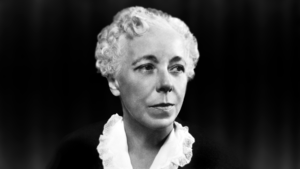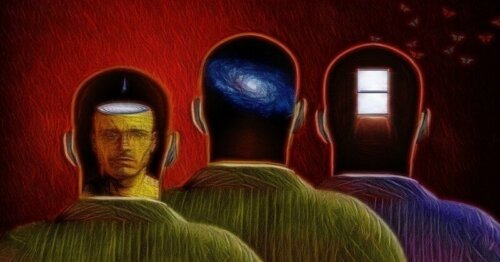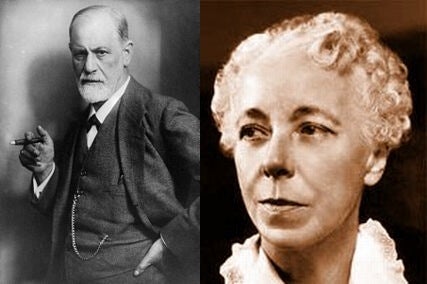Karen Horney, the Woman Who Confronted Freud

Karen Horney, a German psychoanalyst, is one of those women who deserves her own space in history, way beyond the scientific field. She was a woman ahead of her time who didn’t have any qualms about questioning the foundations of the psychology of her era.
Her revolutionary theories led to confrontations with the most conservative factions in the science of her era. But, in addition, she had to deal with the difficulty of being a woman in a world of male theories.
Karen Horney was a German psychoanalyst from the early 20th century. She was the founder of feminist psychology and co-founder of Neo-Freudian psychology. Although you may not know it, she was one of the most critical voices of Sigmund Freud’s theories. The chronic depression she suffered during her youth led her to train in medicine. Then, she finally established herself as a psychoanalyst. In addition, she developed some revolutionary theories about personality and neurosis. In fact, these were the reason for her subsequently being expelled from the New York Psychoanalytic Society and Institute (NYPSI).
She was extremely influential in psychological advancement. She didn’t only make several important contributions in the areas of neuroticism. In fact, she also studied psychological attitudes towards women. You must keep in mind that the field of psychology was male-dominated in the early 1900s. In fact, many relied on Freud’s studies.
However, Horney defended the idea that men were the ones who felt inadequate and jealous of a woman’s ability to develop life. That was the reason why men sought to dominate in all other important areas of life. Contrary to Freud’s theories, Horney called this “womb envy”.

The early years of Karen Horney
Karen Horney, née Danielsen, was born on September 16, 1885, in Blankenese, Germany. She had a tough father who left a bad impression on her. It was mainly because he imposed a strict education on her early on. Thus, she sought refuge in her older brother from a very young age and she felt close to him. However, Karen entered a deep depression when he distanced himself from her. It became chronic and she had several crises throughout her youth. Thus, to cope, she devoted herself to her studies. Karen Horney remembered years later that, back then, she decided she would be smart since she couldn’t be pretty.
In 1906, she enrolled in the University of Freiburg Faculty of Medicine. This university was one of the few who accepted female students back then. Subsequently, she attended the University of Göttingen. Finally, in 1909, she enrolled at the University of Berlin, where she opted to train in psychoanalysis. It was an emerging psychology school back then and she graduated from it in 1915. In 1910, she married Oskar Horney, a fellow student, and they had three daughters.
“If you want to be proud of yourself, then do things in which you can take pride.”
-Karen Horney-
Professional life
Karen Horney served as a professor and analyst at the Berlin Psychoanalytic Institute during her early professional career. However, despite her outstanding professional situation, her personal life began to falter. For instance, her marriage wasn’t working and her older brother died of a lung infection. As a consequence, Karen plunged into a long depressive state once again.
She moved to the United States in 1932 and, there, she became an Associate Director of the Chicago Psychoanalytic Institute. Two years later, she moved to Brooklyn and established herself as a professor at the New School for Social Research and at NYPSI.
During those years, Karen Horney began to develop her theories of neurosis and personality. During this period of time, she came into contact with other authors of the moment, such as Erich Fromm and Harry Stack.
The theories developed by Horney turned out to be quite critical and opposed to the original Freudian theories. Her criticism got her expelled from NYPSI. This is when she founded The American Journal of Psychoanalysis and the American Institute of Psychoanalysis (AIP), along with other dissidents. She worked there until the day she died in 1952.
Karen Horney and her contributions to psychology
Karen Horney argued that differences between men and women manifest from differences in education and socialization, not biology, as most people believed. This concept was the forerunner of feminine psychology that held that gender power differences alone affected a woman’s mental health.
Horney dared to contradict the Freudian concept of penis envy. Breaking free from tradition, she defended the idea that what women envied was male privileges and power, not their penis.

Karen Horney’s legacy
This text is provided for informational purposes only and does not replace consultation with a professional. If in doubt, consult your specialist.








